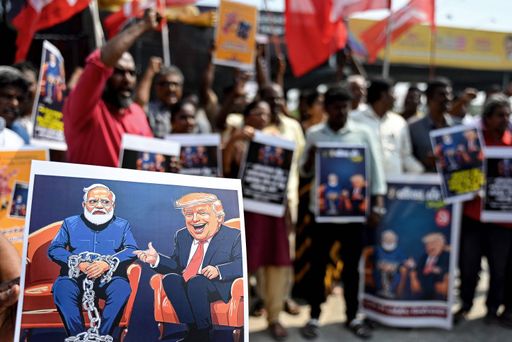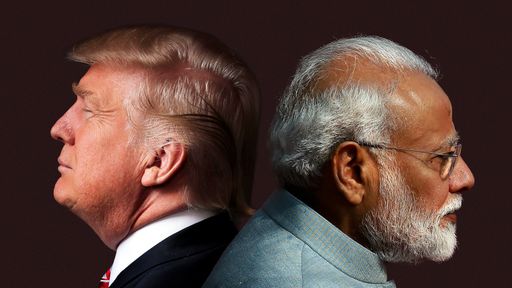In recent weeks, US President Donald Trump attempted to reach out to Indian Prime Minister Narendra Modi by phone on four separate occasions, but Modi refused to pick up, a report by German newspaper Frankfurter Allgemeine Zeitung (FAZ) alleges.
FAZ interprets this behaviour as indicative of both the intensity of Modi’s “anger” and his “caution” in response to US pressure on India to stop importing Russian oil.
The backdrop to these alleged calls includes a major escalation in trade tensions: the Trump administration imposed a 50 percent tariff on Indian goods as a punitive measure for Russian oil imports, which is the highest level applied to any country other than Brazil.
Simultaneously, New Delhi ramped up its purchases of discounted Russian oil, drawing further displeasure from Washington.

A calculated diplomatic move
FAZ suggests that Modi's decision to avoid these repeated calls was far from impulsive — it was a deliberate strategy to avoid being drawn into Trump’s characteristic negotiation style, which previously involved making public claims of deals before formal agreements were in place.
Trump’s earlier announcement of a supposed trade deal with Vietnam, only to have no agreement in place, served as a cautionary example.
Without reaching an agreement, Trump had announced on social media that a trade deal had been struck. "Modi doesn’t want to fall into the same trap," FAZ said.
Political analyst Mark Frazier, who is the co‑director of the India‑China Institute at The New School in New York, posited that America’s Indo‑Pacific strategy, expecting India to aid its containment of China, was faltering.
As Frazier notes, “India never intended to commit to siding with the US against China”.
Other provocations have strained ties further: the Trump family’s luxury tower project near Delhi drew criticism, as did Trump’s public remarks claiming credit for the India‑Pakistan ceasefire, moves that India firmly rejected.
Hosting Pakistan’s army chief in the Oval Office was interpreted in New Delhi as a pointed provocation.

Last known contact
The most recent confirmed communication between the two leaders happened on June 17, when Modi spoke with Trump by phone at the US president’s request.
This was their first conversation since the Pahalgam terror attacks and India’s subsequent Operation Sindoor.
During the call, Modi clarified that there had been no US mediation in the India‑Pakistan ceasefire and that discussions had occurred directly between the two nations at Pakistan’s initiation.
India’s Ministry of External Affairs reiterated that India would never accept third‑party mediation in such matters.

India’s strategic shift
FAZ also highlighted that these developments reflect a broader recalibration in India's foreign policy, where New Delhi seems to be diversifying its strategic partnerships, quietly strengthening ties with nations like China and Russia rather than relying solely on the US framework.
This shift coincides with India’s upcoming participation in the Shanghai Cooperation Organization (SCO) summit in Tianjin.



















